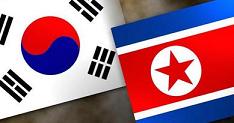Korea and the “Northern Limit Line”: What prospects for negotiations between Pyongyang and Washington?

On November 10th, South Korean and North Korean patrol boats exchanged fire, which resulted in the North Korean vessel retreating in flames and the South reporting no casualties. Both nations blamed each other for initiating the confrontation and demanded an apology from each other.
North Korea’s recent clash with the south Korean Navy at the Northern Limit Line (NLL) has been seen as an intentional provocation aimed at giving Pyongyang more leverage in the upcoming meeting between the US and North Korea. North Korea’s intention has been deeply debated and the incident is being watched carefully for any clue as to why Pyongyang is escalating tensions again.
The confrontation could be a sign to the US that it should quickly announce whether it is willing to participate in bilateral talks. If this was the DPRK strategy, then it worked, as the US announced a day after the incident that it indeed willing to enter into direct talks and that diplomat Stephen Bosworth will visit Pyongyang for taking this forward.
There could be more to the confrontation as the North Korean lost tremendous amount of face as its patrol boat was outgunned and damaged. Pyongyang knows by now from the previous clashes that their navy are no match for the Seoul’s much more advance ships.
North Korea has been pushing for years for direct negotiations with the US. It pulled out of the six-party talks aimed at disarming its nuclear weapons and capabilities and stated it was willing to return to the six-party talks only if the US hold talks directly with them and that too if the bilateral round goes well.
The question is what the North Koreans cannot ask or demand from the US with the other four nations present. Is it a symbolic victory if North Korea manages to get the US to enter a bilateral negotiation?
The military clash on the NLL gives a clearer picture of why the North Koreans are so determined to get the US to hold direct talks with them. It seems they want to put the NLL on the negotiating table with the US’ back against the wall.
The NLL was unilaterally drawn by the US after the Korean War, though it was never recognised by Pyongyang and was never included in the Armistice Agreement of 1953, which ended the Korean War. The North Korean government has been vocal against the NLL and demanded ofted that it be redrawn.
Pyongyang has constantly been attempting to put the NLL on the negotiation table with the US and South Korea. In 2007, high-level military talks were ended angrily by the North due to the South Korean refusal to negotiate the NLL.
In 1999, the North urged the South and the US to recognise the demarcation line further south. Though Pyongyang’s calls have gone unanswered or rejected, it now sees an opportunity to force the US to reconsider its stance on the NLL.
The North Koreans realised that Stephen Bosworth’s likely travel to North Korea for bilateral talks was just a matter of time. Pyongyang may have purposely caused the clash on water to force the NLL be put on the agenda at the bilateral meeting.
By using the lone patrol boat as bait to ignite tension and present the NLL as an obstacle to a peaceful Korean peninsula. This will give the North Koreans a pretext for putting the NLL on the negotiating table when the US and North Korean meet for their upcoming bilateral meeting.
Making the NLL, which was not included in the armistice treaty, a dangerous flash point will present North Korea’s demand the demarcation line be redrawn to avoid more confrontation as reasonable and legitimate. With the tension heating up between North and South Korea it is making it hard for Washington to ignore.
If the US refuses, it will incur the blame for the failure of the nuclear negotiations. The North Koreans have intelligently calculated that the only way for the US to redraw the NLL is to tie this issue to the future of the six-party talks.
If the Obama administration wants North Korea to return to the six-party table and end its nuclear weapons program, it might have to accommodate North Korea’s demand in exchange for Pyongyang’s return to the six-party negotiations.
Peter Van Nguyen, is a freelance contributor who has written for Asia Time Online, OpEdnews and Foreign Policy Journal.

